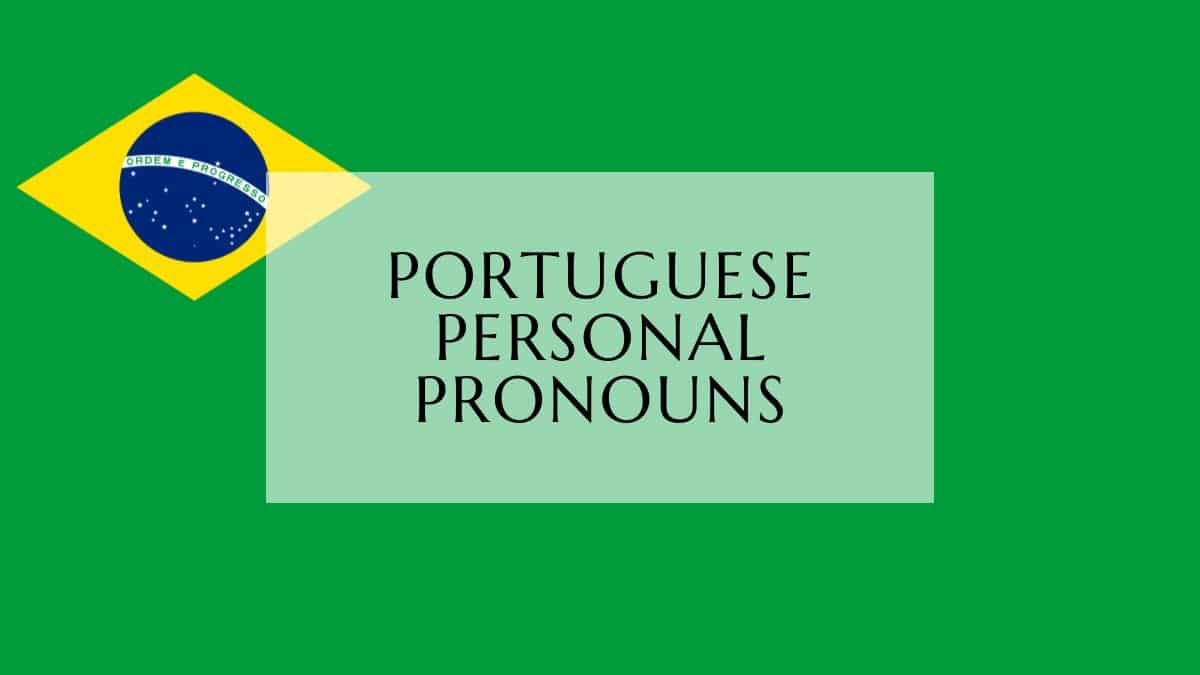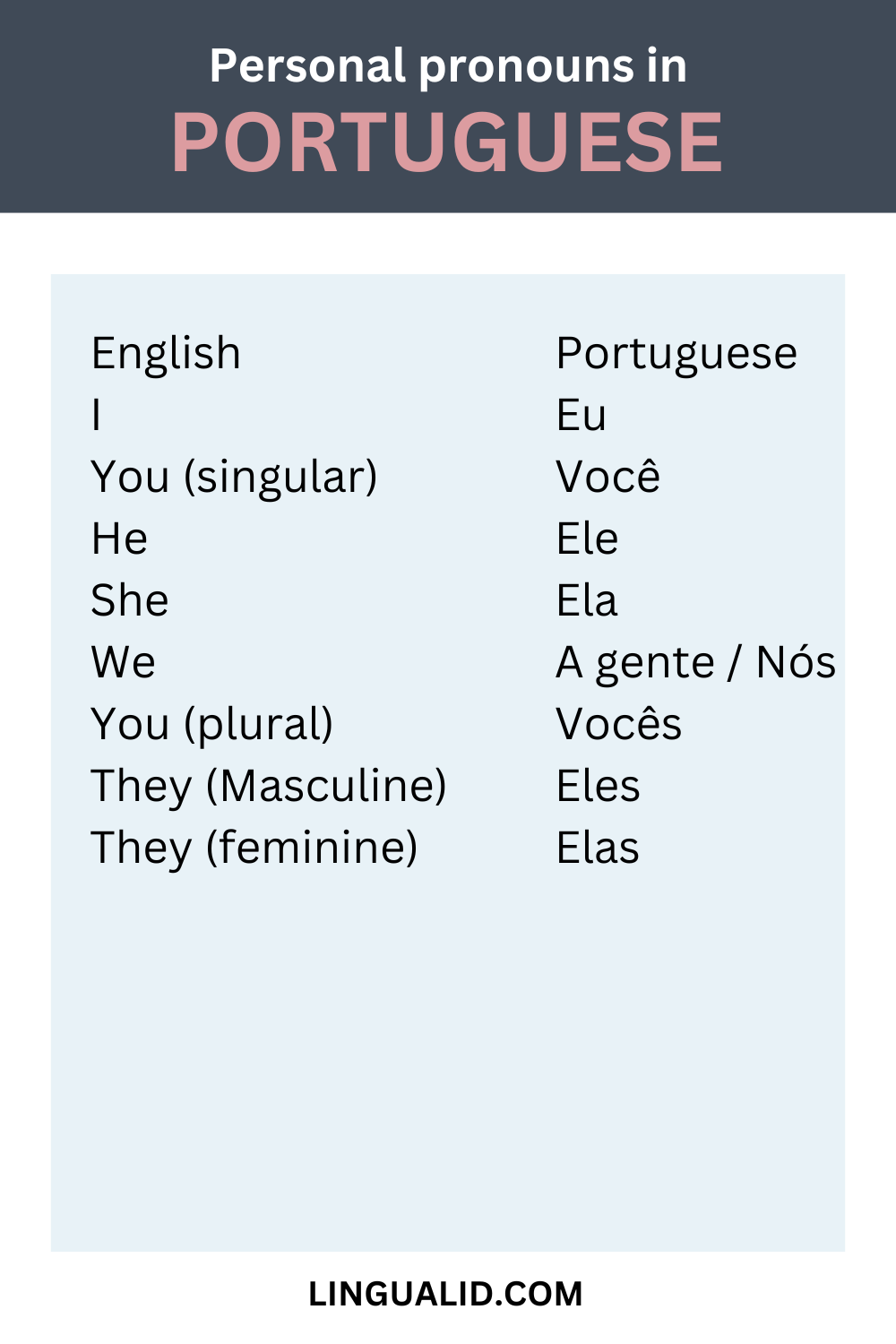Portuguese Personal Pronouns is one of the first basic lessons every Portuguese learner must learn to talk about or describe anything, of course adding to that verbs, nouns, and adjectives to give complete sentences. So in this post, we will talk about personal pronouns in Portuguese and provide some brief explanations.

| English | Portuguese |
| I | Eu |
| You (singular) | Você |
| He | Ele |
| She | Ela |
| We | A gente / Nós |
| You (plural) | Vocês |
| They (Masculine) | Eles |
| They (feminine) | Elas |
Note: you can practice what you’ve learned here, and learn how to pronounce each of the words in our Memrise course here, don’t know how to use the platform or sign up? we’ve got you covered in this easy-to-follow tutorial here.
Tips:
- There are other forms of saying You: TU (singular) and VÓS (plural) but “Você” and “Vocês” are more widely used. Also, their conjugations are slightly different.
- There is no “it“, every Portuguese word has a gender, so it’s either “ele” or “ela“.
- They: If we’re talking about a group of males we use “eles“, for females we say “elas“, and for a group of a mix of genders, we use also “eles“
- We: in daily life in Brazil, “a gente” is more commonly used, and its conjugation is the same as “you singular”, “he” and “she”, in written Portuguese, “Nós” is more used.

Happy learning!
